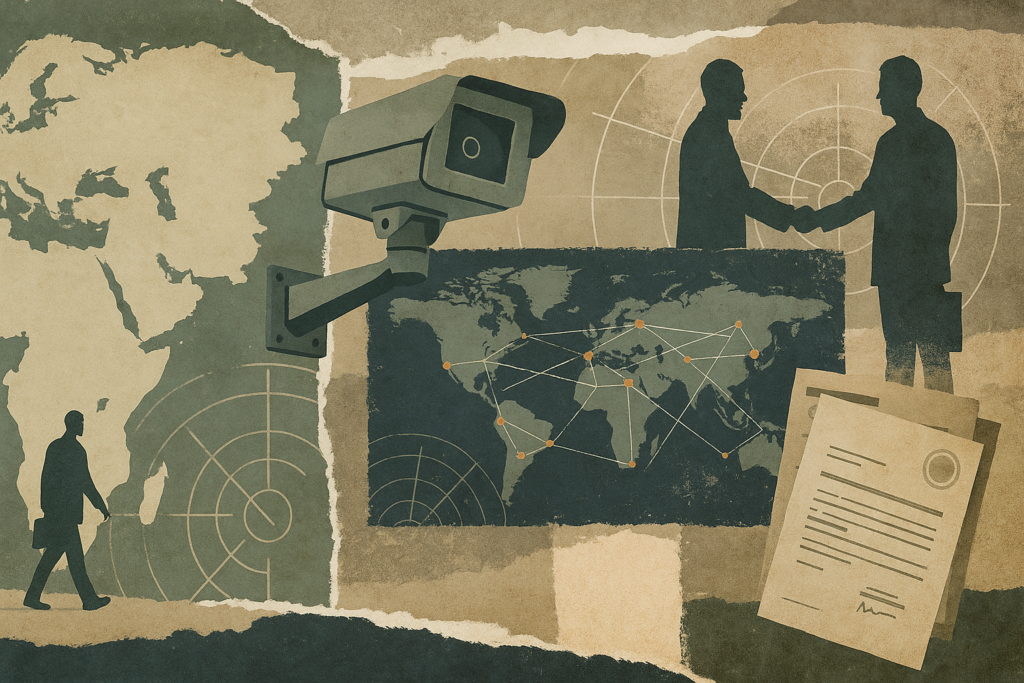
Of kingdoms and crooks: The rise of geocriminality
Crime & Conflict, Geocriminality, JIED
States have long used various means to project influence beyond their borders, but one of the most striking and growing trends in recent years has been the use of organized crime to achieve foreign and domestic policy objectives – what we term ‘geocriminality’.
State-directed proxies carry out assassinations, disinformation campaigns, cyber attacks, sabotage, gathering intelligence and moving money, gold or sanctioned goods. North Korea’s Office 39, for example, has been documented as generating much-needed revenue for the state through counterfeit currency and methamphetamine production. Iran deploys criminal groups to target opponents and fund armed groups abroad. Moscow draws on criminal networks to target allies of Ukraine – partly the result of a crackdown on its intelligence networks in Europe, but also because criminals offer a low-cost, low-risk means of conducting violent operations.
This phenomenon is not new. In the 17th century, English privateers were empowered by Elizabeth I to carry out hit-and-run attacks on Spanish ships. The US government worked closely with the mafia to plan and carry out the invasion of Sicily during World War II, and later to try to assassinate Fidel Castro.
But with the rise of transnational organized crime over the past three decades, states now have a much more powerful tool at their disposal. Criminals are deeply embedded in the sinews of globalization, and globally dispersed. This has made organized crime a tempting tool for regimes that are strong at home but isolated abroad, especially through sanctions, and which want to make money and trouble.
Geocriminality needs to be understood as a serious threat to national security and democratic values, rather than just a series of isolated incidents. As such, the GI-TOC will continue to research this phenomenon across the globe, shining a light on this aspect of organized crime, and advising states that adhere to the principles of democratic governance, human rights and the rule of law on ways to respond to the geocriminal threat.